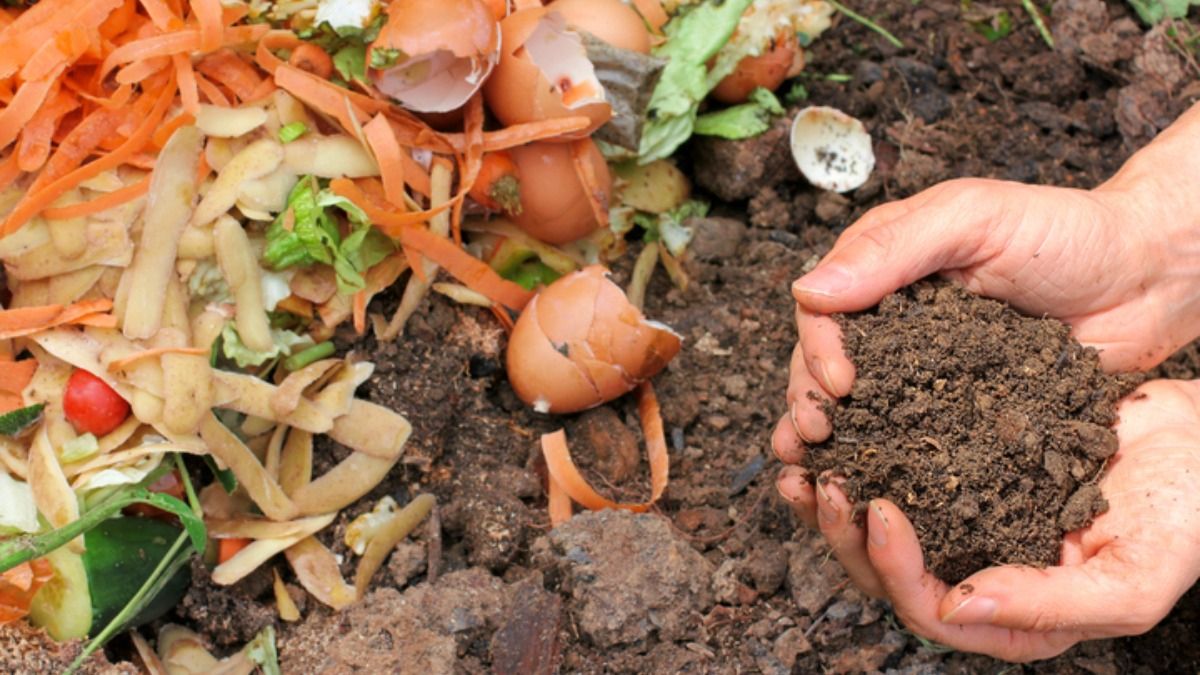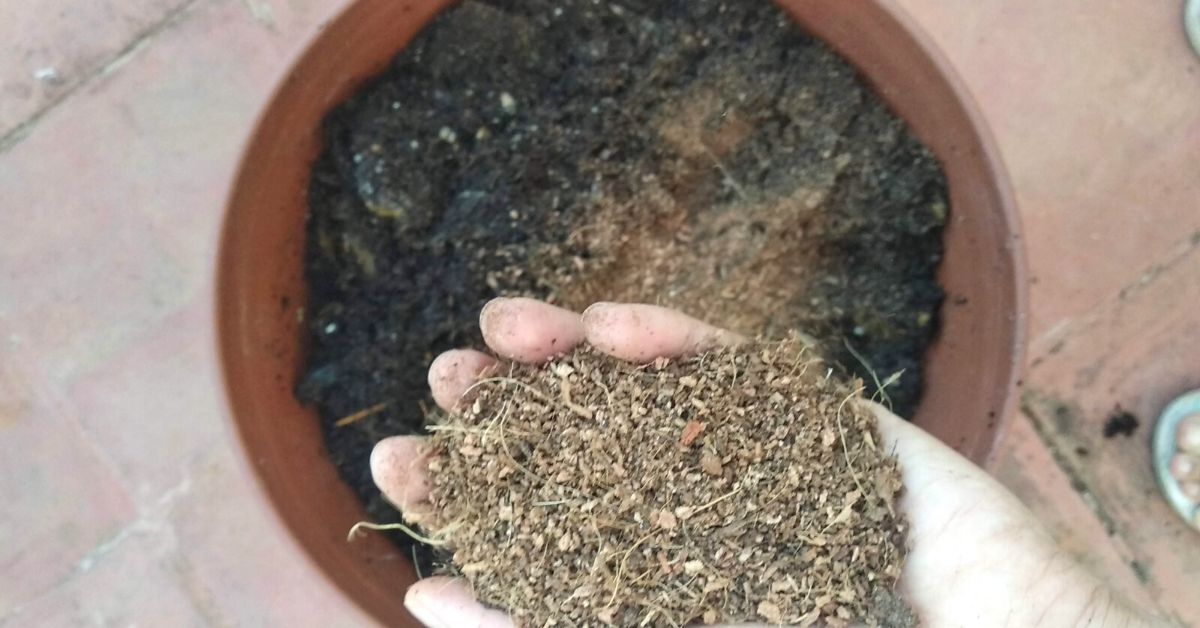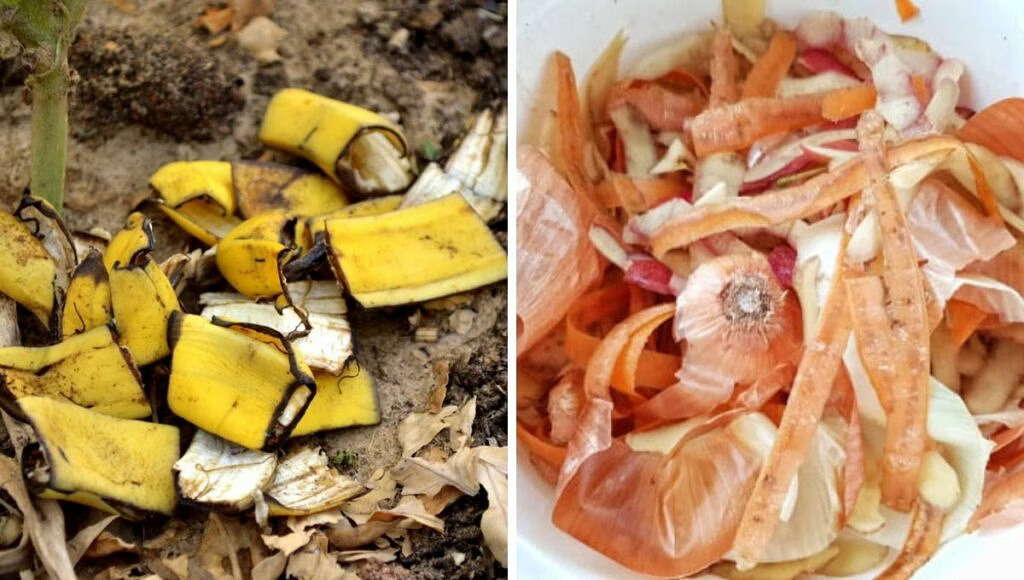Make 5 Types of Compost From Peels, Tea Leaves, Kitchen Waste: Terrace Gardener’s Tips
Manjushree Ladiya, a terrace gardener from Ghaziabad, shares tips on how to make different types of compost from kitchen waste, each serving specific purposes.

The right way of waste disposal is confusing for the rapidly growing urban population. Disposing of daily biodegradable waste is one of the major issues we face. But there are certain ways in which this can be mitigated with a little effort and patience.
As urban terraces and balcony gardens are growing, composting is turning out to be an increasingly popular solution to manage biodegradable waste. It not only stops the organic waste from piling up or going into landfills, but it also provides nourishing organic fertiliser for your garden.
Manjushree Ladiya, a terrace gardener from Ghaziabad, who has been composting all her kitchen waste for the past four years agrees with this.
“Composting is not as hard as people think it is. One can easily convert their everyday kitchen waste into compost, which contains all the essential nutrients for healthy growth of plants,” she says.
Manjushree has been making different types of compost in separate containers using different ingredients. “Though the preparation method remains the same for all types of composts, its uses and benefits vary depending on the ingredients,” she says.
The easy and basic method of compost preparation:

- Take a container and make a layer of leaves.
- Add a layer of cocopeat.
- Add kitchen waste like vegetable/fruit peels, egg shells, coffee or tea grounds etc into it and cover the container.
- Open the container and stir the pile from time to time, and keep adding the waste into it.
- Add a bit of cocopeat and jaggery water to enhance the quality of the compost produced.
- Do this process for around three months to form ready-to-use nutrient-rich compost.
Different types of compost along with their specific uses
- Compost from garlic and onion peels
Manjushree has been collecting the peels of garlic and onion separately in different containers for composting. She says, “The compost made from garlic and onion peels is rich in potassium, which is an essential plant nutrient. It makes excellent compost and is very effective for the growth of chillies.”
2. Banana peel compost
A common kitchen waste, banana peels make a great composting ingredient. Though it can be composed along with all other kitchen waste, Manjushree suggests composting them separately for better results. “It is rich in potash and hence it makes a great fertiliser for vegetable plants and fruit trees,” she says.

3. Compost made from tea leaves
She shares that rather than adding used tea leaves to plants, it is better to compost them.
“Composting enhances its quality and tea leaf compost works the best for flowering plants, especially roses. Adding the compost would accelerate its growth and flowering,” she says.
Manjushree adds that tea leaf compost can be prepared even in a five-inch pot. Like any other compost, it takes around three months to be ready.
4. Mosambi and orange peel compost
Mosambi and orange peels take longer to compost, so she suggests processing them separately.
“Being citrus fruits, their compost makes an excellent source of nitrogen, phosphorus and potassium essential for plant growth. Besides, they can also be used to make liquid fertilizers and bio enzymes,” she says.
5. Mix Compost
Manjushree makes mixed compost using all the other kitchen waste like vegetable peels, greens etc. She suggests not including cooked stuff or ingredients like ghee, oil, or salt in the mixture.
“The compost is made by adding only raw vegetable waste, and it is suitable for all types of plants,” she adds.
Edited by Pranita Bhat
If you found our stories insightful, informative, or even just enjoyable, we invite you to consider making a voluntary payment to support the work we do at The Better India. Your contribution helps us continue producing quality content that educates, inspires, and drives positive change.
Choose one of the payment options below for your contribution-
By paying for the stories you value, you directly contribute to sustaining our efforts focused on making a difference in the world. Together, let's ensure that impactful stories continue to be told and shared, enriching lives and communities alike.
Thank you for your support. Here are some frequently asked questions you might find helpful to know why you are contributing?














